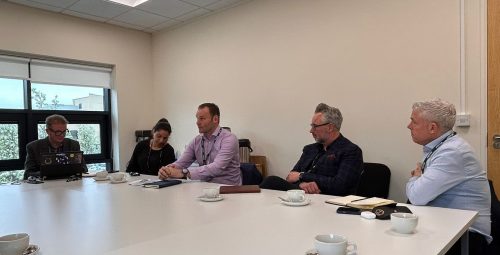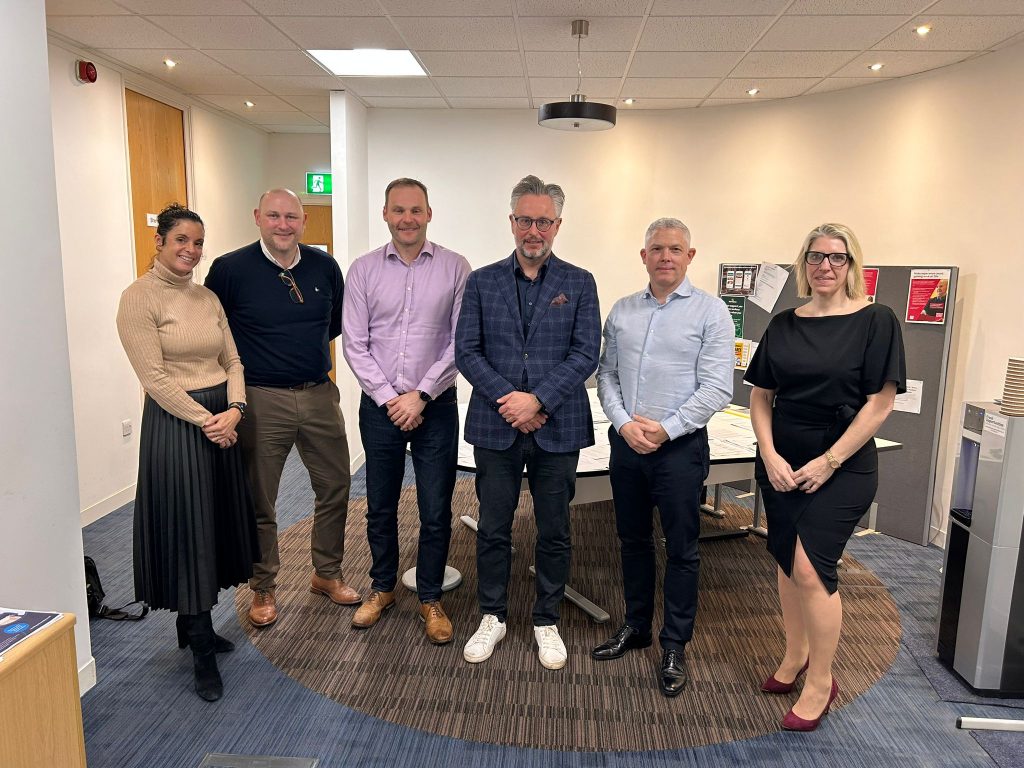Round table report: A new dawn of leadership – how winners will prevail

Business leaders have become used to dealing with ever-changing external factors that have created significant uncertainty – from Brexit, the pandemic, conflict in Europe and onto hikes in inflation and interest rates.
While this has undoubtedly developed resilience it continues to throw up difficulties when business leaders are searching for a medium- and long-term plan to grow their organisations. Companies, and leaders at every level within the organisation, need to have the ability to adapt to and deliver an ever-increasing pace of change.
At our latest round table, sponsored by Curium Solutions and hosted by East Midland Chamber, our panel discussed some of the learnings from the consequences of Brexit, the pandemic, macro economic factors and technological change, to see how they can be applied to build teams that are focused, adaptable and confident in the face of uncertainty.
Our discussion started by asking the panel how their businesses had changed during the upheaval of the last four years.
James King, chief revenue officer at Ideagen stressed that resilience was the order of the day in boardrooms.
He said: “We’re seeing from our customers that they’ve had to deal with Brexit, Ukraine, the downturn in the economy. These are very much boardroom issues – but they want a single view on how they’re supposed to deal with these challenges.
Company owners are suffering from a “real existential leadership crisis” – that’s according to one of the best-known names in East Midlands business.
David Williams, the chairman of law firm Geldards, said: “We’re getting no leadership from the Government in London and this is making leading a company incredibly difficult. How are you supposed to tell your staff everything is going to be okay if you don’t really believe it yourself? It’s one of the hardest times to lead an organisation, in my experience.”
Kay Chand, partner at Browne Jacobson, thought that the biggest challenge had been attracting talent.
“There’s been a real drop-off in talent,” she said. “It’s taken leaders time to adjust to how the world has moved on. Inclusivity has become a watchword and business owners are having to rethink how they go about leading people.”
Chand also stressed the return to the office hadn’t been an easy ride.

Some of our panellists networking, post-discussion
She added: “Some people in the legal sector were doing their training from home during the pandemic. They’re getting a bit of shock having to work from an office.”
Emma Isichei, the chief marketing officer at MHR, also touched on the recruitment and people theme.
She said: “There is certainly a skills gap. Leaders have to react to what skills are required for which jobs and how they deploy the right skills for the right tasks and the right times.”
She added: “Recruitment has changed. Now, we’re perhaps not looking for someone who is the perfect fit for a role; we’re looking for a person with a fluid skills portfolio.”
Andy Dawson, director and co-founder of Curium, said: “We also don’t really know what leaders will need in the future. The sheer pace of change is unprecedented and so employee engagement is essential.”
Kevin Harris of RSM said the rule book of leadership has been largely cast aside.
“I’ve been through lots of different situations over the last 30 years,” he said. “There’s been an established model and it’s been quite clear how to get into senior management positions.
“However, now we’re realising in the professional services sector that a one-size-fits-all approach to leadership won’t work. We need to flex and think about what we do and say is going to land. Communication is key.”
Adam Farrow, director and co-founder of Curium asked how aware leaders are of these problems.
Harris replied: “It changes for different geographies. We tend to consult people on the ground before we communicate with our staff.”
Kate Tinsley, CEO of MKM Building Supplies said that the construction sector is going through its most turbulent time in the last 20 years.
She said: “We’re now absolutely in recession and not far off a great depression – it’s as dark as it’s been.
“The communication piece is vital. Most people who work in the construction sector know that it’s cyclical, but this is on another level. It’s a much broader challenge.
Dawson said that the pandemic has led to a desire for flexibility. He asked Tinsley whether this has caused her business any problems.
She said: “Initially, yes – it became a case of “them and us”. But, again, it came down to communication.
Richard Blackmore, head of special projects at East Midlands Chamber, thought one of the biggest problems for leaders was not just recruitment, but retention.
He said: “It’s almost flipped; there’s now an expectation from the workforce of the company they’re working for to be the best it possibly can.
“If you speak to business owners they’ll talk about how they’ve had to look at employee packages, and how it helps sustainability and wellness. If you don’t have these things in place as a business you’ll struggle to recruit the best people.”
Isichei agreed and added: “From the first moment you interview people, they’re asking “what are you going to do for me?” A big challenge is how to create development packs for the individual.
Laura Jennings of AON said: “People buy from people. We did a risk survey covering the period from 2021-2023 and the top ten risks haven’t really changed. People thought they were underpaid and undervalued – but that’s changing. People are valued more, which can only be a good thing.”
King asked whether the panel thought that business leaders can overcome these issues with different things. He said: “I’m finding more and more that younger people are less interested in material things. They care more about ESG, for example – money is sometimes not the key driver.”
Dawson agreed, adding: “Employee engagement is so important; there’s no going back to how we worked pre-pandemic.”
However, Chand said that in the legal sector, this shift had proved difficult – because it all costs money.
She added: “In the professional service sector time is money. We’re expected to sit there, do the work and bill the client. Getting involved in charity or ESG initiatives can be a challenge.
The panel was then asked whether or not they thought there had been a shift towards the ‘accidental leader’? That is, people who have been promoted without being properly trained and equipped for managing people.
Williams said: “We can all do internal leadership piece, the real problem is how do you lead in the outside vacuum. My one real hope from the upcoming Mayoral elections is that we get some East Midlands leadership.”
Tinsley said: “Leaders nowadays have to be a chameleon but stay authentic.”
Farrow added: “This all comes back to the accidental leader. We’re expecting these people to inspire others, but they’re having to deal with change at such a tremendous pace. They’re thinking: ‘Well, no-one told me how to do that’. There is a real underdeveloped awareness out there around leadership.”
Dawson said: “Authenticity is so important. Some companies are guilty of paying lip service – if it lacks bones and DNA then it’s not worth anything.
“I think the discussion today emphasises the importance of leadership. We haven’t worked out how to work post-pandemic. The future winners will learn how to master this dichotomy.”
Panel:
Sam Metcalf, TheBusinessDesk.com (chair)
Andy Dawson, Curium Solutions
Adam Farrow, Curium Solutions
Kay Chand, Browne Jacobson
Emma Isichei, MHR
David Williams, Geldards
Kevin Harris, RSM
Kate Tinsley, MKM Building Supplies
Laura Jennings, AON
James King, Ideagen
Richard Blackmore, East Midlands Chamber










